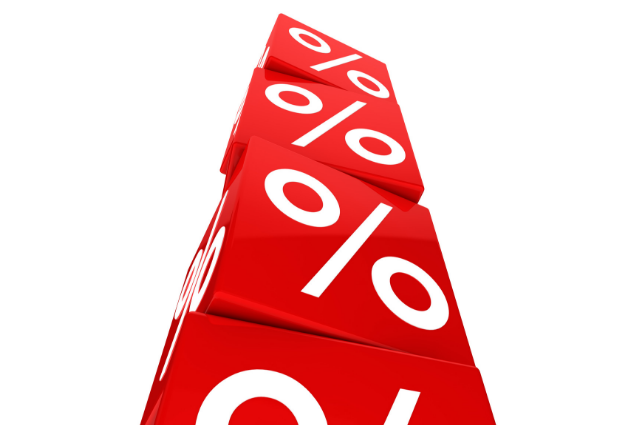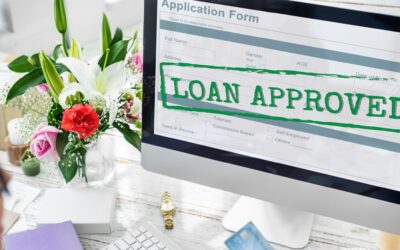When you think about investing in commercial real estate, one thing you might want to look into sooner or later is the commercial real estate loans.
With commercial real estate loan rate fluctuating between properties, banks, private money lenders and other lending institutions, a fair knowledge about how these commercial real estate loan rates work will help you make more informed decisions and this blog is all about that.
Before you finalize the kind of loan you are borrowing to suit your financing needs and negotiate the terms and rates with your lenders, read on this write-up to understand how commercial real estate loan rates work.
The Basics
Before you finalize the kind of loan you are borrowing to suit your financing needs and negotiate the terms and rates with your lenders, read on this write-up to understand how commercial real estate loan rates work.
Commercial Real Estate Loan rate can vary between 5% to 30% depending upon the purpose of the loan, the application, the collateral and most importantly the term of the loan. It is not surprising to note that residential mortgage rates are always lesser than the commercial real estate loan rates.
This is because the term of the loan for commercial mortgages is usually shorter than that of residential mortgages and the general rule of thumb being – the shorter the term of the loan, the higher the interest rates.
For example, A home loan would typically be taken for a term of 25 to 30 years at the least. Whereas, a commercial mortgage loan will be taken for after as less as 3 years to 20-25 years. And thus, on any given loan, the residential mortgage rates will always be lesser than the CRE loan rates.
Besides the basics, there are 3 most important things that determine and influence the commercial real estate loan rates:
A) Loan To Value Ratio (LTV Ratio)
B) After Repair Value Ratio (ARV Ratio)
C) Fixed versus Floating commercial real estate loan rates
Knowing about these 3 factors is crucial in understanding how the CRE loan rate works practically. Read on.
A) Loan To Value Ratio (LTV Ratio)
LTV ratio is a ratio that compares the value of a loan to the value of the land. Let’s say, the value of your property is $1,00,000 and your lender maintains an LTV ratio of 80%.
This means that your lender is going to only fund $80,000 of your total financing need and the remaining $20,000 must be arranged by you through different sources.
Now, you must be wondering how this ratio will influence your CRE loans rate. Here’s how:
Typically, the LTV ratio offered by the majority of lenders ranges somewhere from 50% to 90%. The higher the LTV ratio, the higher will be the rates on your commercial real estate loan.
This is because when the LTV is high, it means that your lender is covering up for you for a larger amount than you yourself are in the form of initial down payment.
There’s more risk on part of the lender and hence, the commercial real estate loan rates will be higher for an LTV that is high.
This is also done in the favorable interests of the lender because in a case where you default from making loan repayments on time, the lenders have much more to lose so it’s in their best interests that they charge you higher rates right from the start.
B) After Repair Value Ratio (ARV Ratio)
This is also done in the favorable interests of the lender because in a case where you default from making loan repayments on time, the lenders have much more to lose so it’s in their best interests that they charge you higher rates right from the start.
ARV ratio is used by commercial real estate loan lenders when they are financing rehab properties or properties that are in need of minor or major repairs and renovations.
It basically refers to the value of a property after the repairs and renovations are completed. It is the ratio between the loan amount to the value of the property after making certain repairs and renovations to it.
Let’s say the ARV ratio offered by a lender is 60%. This means that, if your property will be worth $1,00,000 after repairs and renovations, your lender will fund only $60,000 and the rest of the investment again, has to be arranged by you through different means.
So, how does this affect the CRE loan rates? Just like the LTV ratio, the higher the ARV ratio of a property, the higher will be the commercial real estate loan rate as a rule of thumb.
It depends on your individual financing needs, you might want to check with the lenders who offer a much lower LTV and ARV rates so that you don’t have the burden of bringing a large chunk of money to the table.
C) Fixed versus Floating commercial real estate loan rates
It depends on your individual financing needs, you might want to check with the lenders who offer a much lower LTV and ARV rates so that you don’t have the burden of bringing a large chunk of money to the table.
Commercial Real Estate loans can be fixed or variable depending on the lender you choose and the nature of your specific financing needs. Commercial Real Estate fixed loans have a rate of interest that remains fixed throughout the life of the loan.
On the contrary, floating commercial real estate loans will have rates that change periodically, either every once in 6 months or a year, or even monthly based on the varying market rates.
The fixed commercial real estate loans will provide you with peace of mind and you don’t have to worry about uncertainty every month or year, about the increase in your out-of-pocket expenses towards your loan liabilities.
However, for some type of loans, fluctuating loan rates alone will make more sense and you cannot, as a borrower, have a say in determining whether or not you should get a fixed loan or a fluctuating loan from your lender.
Conditions like whether it is fixed or fluctuating, along with other general terms and conditions will be lined out clearly in the loan agreement which shall be shared with you at the time of loan approval.
Over and above these 3 most important things that influence the commercial real estate loan rates, here are some more key factors that can affect the commercial real estate loan rates:
1) Your credit score
Over and above these 3 most important things that influence the commercial real estate loan rates, here are some more key factors that can affect the commercial real estate loan rates:
Commercial Real Estate loans generally involve lending of huge sums of money and the overall creditworthiness of a borrower is something that is considered widely.
As a general rule – the higher your credit scores, the lower the commercial real estate loan rates will be.
The reason behind this being the lenders are interested to know about the extent you have been responsible for paying up your loans on time.
In order to qualify for a bank loan or SBA loan, they require you to have a credit score above 700. In case you don’t qualify, your best bet would be to borrow from hard money lenders who can work out the rates even when your credit score is low.
But as a general rule, if you want your commercial real estate loan rates to be generally low, maintain a good credit score is very essential.
2) The amount and the term of your commercial real estate loan
But as a general rule, if you want your commercial real estate loan rates to be generally low, maintain a good credit score is very essential.
As a general rule – the higher the loan amount, the higher the CRE loan rates and the shorter the term of the loan, the higher the CRE loan rates.
This is justifiable because when the loan amount is huge or when the term of the loan is really small (and the repayment of a principal amount will be done much sooner), it is riskier for the lenders and thus higher rates of interest will be charged.
3) The application of your commercial real estate loan
How you intend to use your commercial real estate loan also determine a great deal on what commercial real estate loan rates you can qualify for.
For instance, using a commercial real estate loan to build a property from the ground up is a much riskier deal than using a loan to renovate or make additions to an existing property. So, based on how risky the overall deal will be for your lender determines the rate of your CRE loan.
4) The current rates in the Market
As far as the fluctuating commercial real estate loan is concerned, the lenders will periodically change the rate of the loan based on the existing market rates.
Simply put, the economy of the market determines how much your lender is going to go low or high on the rate of your loan.
When the economy is in the growth curve, the rates generally go up and when they face a downturn, the rates go down.
5) Additional top-up fees you pay towards your commercial real estate loan
The percentage of a total amount you pay towards clearing off your loan repayment liabilities against the loan amount is called Annual Percentage Rate (APR) and this rate also determines the rate of your CRE loan.
Additional to loan interest fees, you may also incur more expenses like legal costs, loan origination costs, survey fees, loan application fees, and your lender will consider all these factors before determining your CRE loan rate.
So, it is important for you to be more careful with the interest rates as they can be deceivingly low sometimes, but with higher additional costs.







